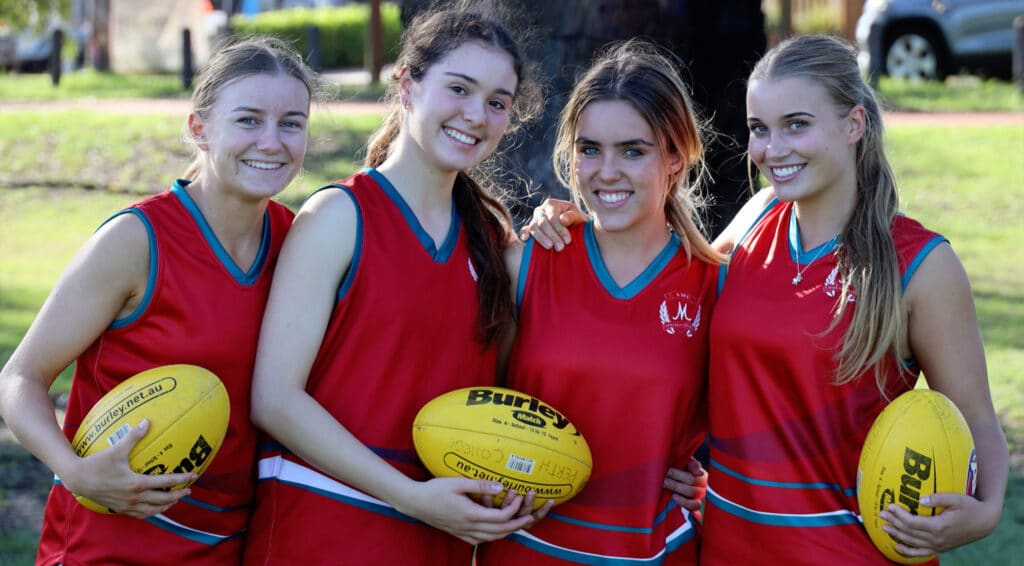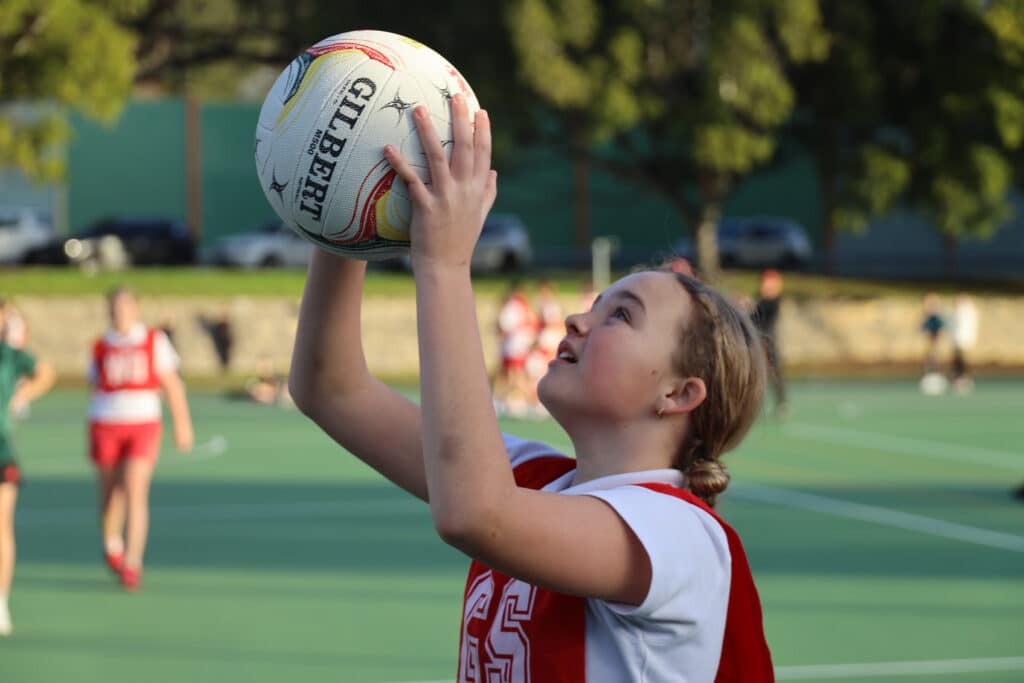The Importance of Girls in Sport – Jennifer Oaten

The Women’s Soccer (or Football) World Cup is one of the biggest ever events for female athletes. Watching these players on the big stage showcasing their talent, their grit, their intensity, and the sacrifices they have made to represent their country and compete at the highest level is inspiring for all young women. Australia sold 83,500 seats to its opening match, over a million tickets have been sold for the tournament, and there are more televised and streaming options than ever before. There are also nine women coaches, more than ever before.
In a world connected to technology, and increasing mental health challenges, sport plays a significant role in conditioning both the body and mind to function at its best. Sport is something we want all young people, especially young women, to be involved in both as a child and particularly during the teenage years.
As a parent, I have spent many hours standing on the sideline in the rain at netball and football games. I also did stints as a coach and manager. I am delighted my children are still heavily involved in their chosen sport, volleyball. As parents, we do all we can to encourage this ongoing involvement. I believe as parents, one of the most important things we can do for our young people is to ensure their participation in sport continues through the critical high school years from 12 – 17, whether in team or individual sports.

Why do female students stop playing sport?
Research suggests many young women stop playing sport because:
- They lack the necessary skills or fitness, or feel that others have more talent
- They lack confidence due to being self-conscious about their bodies
- They have family backgrounds where sport is not prioritised
- Few of their peers play sport, or there is peer pressure to be involved in other activities
- Of social norms which influence choices about girls in sport
- Of conflicting commitments such as work, academics or socialising
- Of the time commitment required for sport
- Of financial pressures due to the cost of club fees
- Travel may be required for training and fixtures.

5 Key Benefits of Sport
1. Boosting Physical Health
Regular physical activity not only improves muscular strength, flexibility, and endurance but also supports heart and lung health. Additionally, it enhances coordination, balance, and muscle control which will enable them to move into adulthood with strong, healthy bodies.
Sport often encompasses the significance of nutrition, the importance of a balanced diet and making healthy eating choices, along with discussions on how nutrition affects physical performance in sports.
2. Enhancing Cognitive Function
Engaging in physical activity has been scientifically proven to stimulate brain activity, leading to many cognitive benefits. Not only does it enhance memory retention and concentration, but it also positively impacts academic performance. This is particularly evident in children who regularly participate in physical activities, as they tend to exhibit better focus, discipline, and overall academic prowess in the classroom. By incorporating sport into their routine, children can unlock their true academic potential and pave the way for a successful future. Athletic teens also learn how to handle stress and pressure, set goals and work hard to reach a goal.
3. Fostering Emotional Wellbeing
Adolescence is an emotionally charged time, and one way to manage emotions and improve mood is through sport. Physical activity can profoundly impact the emotional wellbeing of children by fostering self-confidence and boosting self-esteem. Engaging in physical activities also provides a healthy outlet for managing stress and anxiety, ultimately promoting overall emotional health. Sporting groups provide a sense of belonging, being valued and making a contribution to the team, all assisting in developing a positive self-image.
Playing sports helps in the production of healthy hormones that affect your happiness and create feelings of satisfaction, meaning teenagers involved in sport often have more energy throughout their day and tend to have a more positive disposition in life.
4. Developing Social Skills
Sports provide a dynamic and inclusive platform for social interaction and integration. They have the power to bring together students from diverse backgrounds and cultures, creating an environment that fosters mutual respect, understanding, and appreciation for one another.
By being part of a team, individuals can experience a sense of belonging and camaraderie, which can be especially valuable during the formative and sometimes tumultuous adolescent years. The shared experiences, challenges, and triumphs on the sports field can shape character, build resilience, and forge lifelong friendships.
The competitive nature of sports allows them to learn valuable coping mechanisms when it comes to resilience, supporting one another, winning humbly, and losing cheerfully. Sports can also assist in the development of values such as honesty, fair play, teamwork and respect for teammates and opponents.
5. Promoting Life Skills
Engaging in team sports cultivates strategic thinking and planning abilities, fostering problem-solving skills and the capacity to make quick decisions. Through participation in sports, students develop a sense of respect for rules and officials, understanding that rules are indispensable for ensuring fairness and safety. These valuable life lessons contribute to the holistic growth and development of students, equipping them with skills that extend far beyond the playing field into the world of school, work and life.

Sports education in schools is a multifaceted tool for holistic child development. It goes beyond teaching the basics of different sports, sparking interest in other sports and instilling a deep understanding of the benefits of sport in our lives. By reinforcing the value of physical activity and promoting a healthy lifestyle from a young age, we can empower our children to lead balanced, fulfilling lives and resilient individuals ready to tackle the challenges of the future.
Sam Kerr has sparked this interest in sport for many young girls; it will be our responsibility to ensure this interest thrives and continues through to adulthood. Let us continue to champion the benefits of sports for all young people, particularly young women.

Michelle Attains Lead Teacher Status
Our Head of Professional Learning, Michelle Carrick, recently attained national certification as a Lead Teacher, one of only 64 people nationally to have attained this certification in 2023.

From the President: May 2024
We have some great stories in this month’s blog. Also Look out for information about our OGA Movie Night screening of The Way, My Way.

Lisa Sorger: Sisterhood Network Series
Join us for an inspiring evening at the second session of our Sisterhood Networking Series with Dr Lisa Sorger (Ramakrishnan, 1987).
- Featured
Author: Santa Maria College
Santa Maria College is a vibrant girls school with a growing local presence and reputation. Our Mission is to educate young Mercy women who act with courage and compassion to enrich our world. Santa Maria College is located in Attadale in Western Australia, 16 km from the Perth CBD. We offer a Catholic education for girls in Years 5 – 12 and have 1300 students, including 152 boarders.







